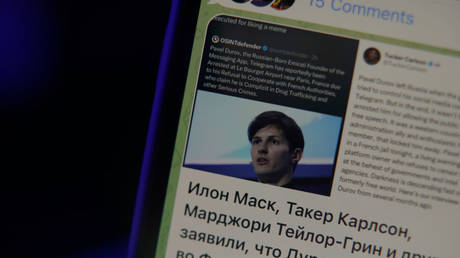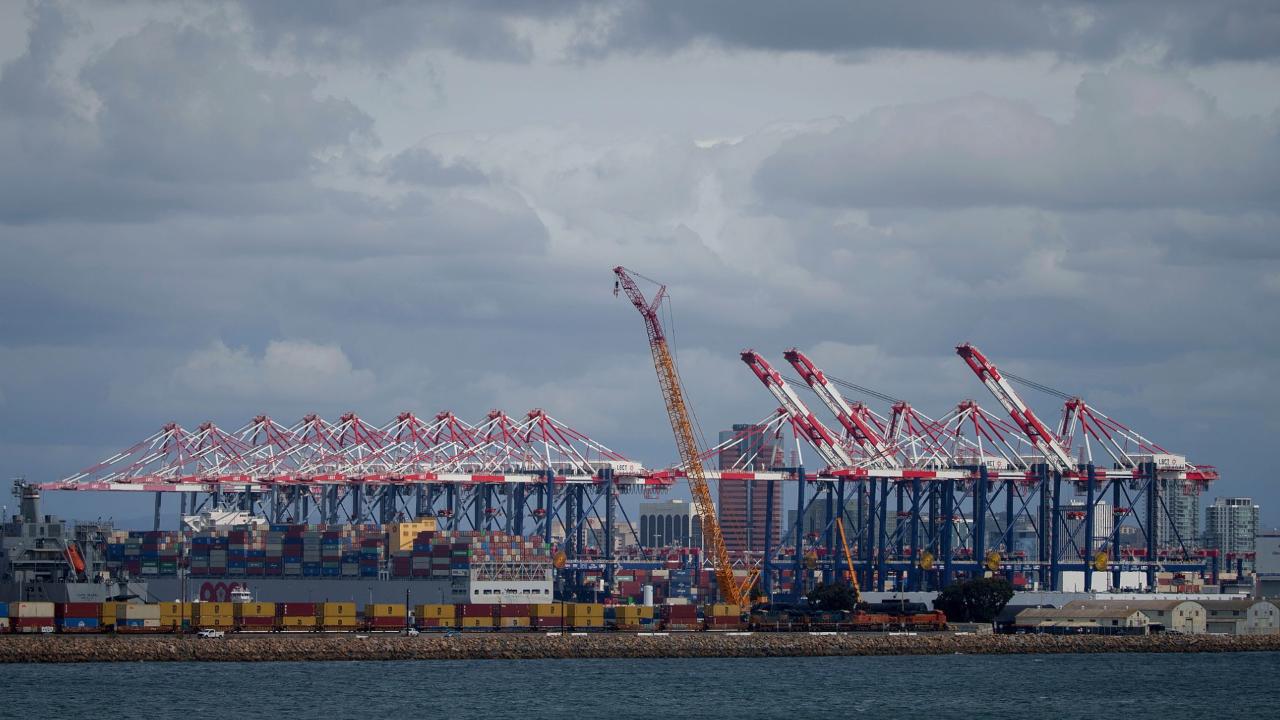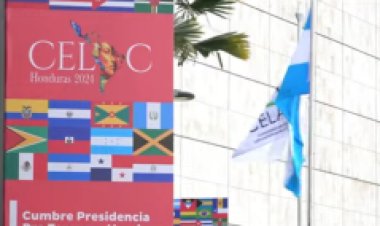‘Imagine if it were Moscow?’ Responses from notable Russians to the detention of Telegram creator Durov
Some view the St. Petersburg-born tycoon as having suffered due to his naivety, while others are calling for intervention from his homeland.

Durov, who is originally from St. Petersburg and holds citizenship in France, the UAE, and St. Kitts & Nevis, has not been charged. Nevertheless, reports suggest he could be facing a significant period of incarceration.
In Russia, Dmitry Medvedev, head of the Russian Security Council and ex-president, reflected on past conversations with Durov: "A while back, indeed a long time ago, I asked Durov why he did not want to cooperate with law enforcement agencies on serious crimes. ‘This is my principled position’ he said. ‘Then, you will have serious problems in every country,’ I told him." Medvedev also commented on Durov's decision to leave Russia and the resulting complications, noting, "He miscalculated. To all our common enemies, he is still Russian – and therefore unpredictable and dangerous."
Fyodor Lukyanov, editor-in-chief of Russia in Global Affairs, suggested that Durov might fill the role once occupied by Julian Assange. In contrast, Lukyanov noted that Durov would likely be supported by more conservative elements.
Andrey Medvedev, a journalist and deputy speaker of the Moscow City Duma, emphasized the significance of Durov's arrest in the context of the ongoing conflict, stating that Telegram has served as an alternative to traditional military communications.
Evgeny Primakov, head of the Federal Agency for CIS Affairs, critiqued Western reactions to the arrest and highlighted perceived biases in reporting.
Margarita Simonyan, editor-in-chief of RT, remarked on Durov's previous efforts to distance himself from Russian authorities and his compliance with Western intelligence, pointing to these actions as unhelpful in his current predicament. She warned that, "What is the main lesson from the Durov story? That anyone who has used Telegram for sensitive conversations/texts should delete it now and never use it again. Because Durov was arrested to take away his keys. And he’s going to give them up."
Georgy Bovt discussed the legal complexities surrounding Durov's situation, suggesting that similar charges could have been brought against him by Russian authorities.
Vyacheslav Davankov, deputy speaker of the State Duma, called for Russian Foreign Minister Sergey Lavrov to intervene and secure Durov's release, citing potential political motivations behind the arrest and concerns over access to Telegram's user data. Davankov proposed retaliatory measures against French economic interests should Durov remain detained: "I did not think I would ever come up with such an initiative. But I propose that [Russian regulator] Roskomnadzor temporarily restrict access to the websites of French companies and organizations that earn money in Russia. And, until Pavel is released, this should be done by all countries in the world that respect the freedom and privacy of their citizens’ correspondence. The French understand the language of money better than any diplomacy."As Durov's legal troubles unfold in France, reactions continue to pour in from various sectors of Russian society, fueled by concerns over the implications of his arrest on digital privacy and free speech.
Amid escalating tensions between Russia and Western nations, many commentators see Durov's predicament as emblematic of a broader struggle between different political ideologies. Supporters assert that his arrest could signal a crackdown on digital platforms and the freedoms associated with them. The political discourse around Durov's confinement is particularly charged, given the growing emphasis on information warfare and the role of technology in modern conflict.
The Kremlin’s response has been cautious, perhaps reflecting an awareness of the delicate nature of Durov’s standing both domestically and internationally. While some officials have voiced strong opposition to the arrest, others emphasize the need for strategic caution. This divergence suggests that Durov’s status as a tech mogul, combined with his complicated relationship with Russian authorities, makes any intervention fraught with complications.
In the shadows of this legal controversy, tech experts and privacy advocates have raised alarms about the potential fallout for Telegram’s user base. Concerns are mounting that any change in management or operational protocols—whether due to Durov's arrest or external pressures—could compromise the platform’s encryption and overall user privacy. As a result, many users are re-evaluating their reliance on Telegram for confidential communications, heeding Simonyan's warning about the implications for sensitive discussions.
On social media, the arrest has sparked a series of debates about the nature of democracy, free speech, and the evolving role of social media platforms in moderating content. Some argue that Durov’s international citizenship and previous defiance of Russian law enforcement illustrate the complicated relationship between tech entrepreneurs and their home countries. A growing number of users are taking to other messaging platforms out of fear that Telegram may come under tighter scrutiny, potentially undermining its viability as a secure communication tool.
In the wake of the arrest, a broader question looms: how will this incident shape the future landscape of digital communication in an increasingly polarized world? As nations grapple with issues of surveillance, data privacy, and the rights of individuals versus the demands of law enforcement, Durov’s situation may provoke a reexamination of how alliances are formed—or fractured—in the contemporary digital age.
The unfolding situation has drawn attentions from human rights organizations, which are now watching closely to see if Durov’s case will ignite larger protests against government overreach in both Russia and abroad. Activists underline the importance of solidarity among those who defend digital freedoms and warn that the trajectory of Durov's case could set a precedent that might influence how other tech leaders navigate legal and political challenges in the future.
As the world waits to see the outcomes of his arrest, the implications resonate far beyond the confines of French legal proceedings. Amid growing international scrutiny, Durov's situation embodies the intricate dynamics of technology, politics, and personal agency—a narrative that continues to evolve as developments unfold.
Lucas Dupont for TROIB News












